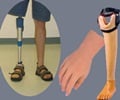Researchers found a five-fold increase in health care costs for women with placental syndromes who developed cardiovascular disease as soon as three to five years following delivery.

‘Researchers found a five-fold increase in health care costs for women with placental syndromes who developed cardiovascular disease as soon as three to five years following delivery.’





Their results were recently published online, in advance of print, in the American Journal of Obstetrics and Gynecology. The study, done in collaboration with Baylor College of Medicine, was supported by the Agency for Healthcare Research and Quality. "Pregnancy does not occur in isolation; it's part of a woman's overall health history," said lead author Mary Ashley Cain, MD, assistant professor in the Department of Obstetrics and Gynecology, USF Health Morsani College of Medicine. "Our study further supports the need for improved interconception care to identify and manage maternal high blood pressure, unhealthy weight and other cardiovascular risk factors before the next pregnancy."
"Early lifestyle modifications, treatment with appropriate medications and routine follow-up may improve the cardiovascular profile of these patients and help prevent or reduce future poor pregnancy outcomes."
Other epidemiological studies have shown associations between cardiovascular disease and placental syndromes, including preeclampsia, a condition characterized by high blood pressure in pregnancy; placental infarction, an interruption in blood flow between the placenta and baby; and placental abruption, separation of the placenta from the uterine wall before delivery. However, most previous studies followed women with placental syndrome for long-term risk of adverse cardiovascular outcomes -- up to 15 years after giving birth.
The USF study focused on the short-term risk of developing cardiovascular disease -- within 5 years of a first pregnancy. Disease arising in this time period would be more likely to affect any future pregnancies. Also, for the first time, researchers
Advertisement
Among the USF researchers' findings:
Advertisement
When placental syndrome was combined with poor fetal outcomes - either preterm birth or small for gestational age, or both - the risk of cardiovascular disease upon short-term follow-up increased to 45 percent.
Women with placental syndromes who subsequently developed cardiovascular disease incurred a five-fold increase in health care-related costs during short-term follow-up, compared to those who did not develop cardiovascular disease.
The researchers concluded that preventing placental syndromes in the 36,713 women with one or more placental syndromes in their study population would have "saved more than $63 million in direct costs of inpatient and emergency care during the average 5-year follow-up period."
Just how hypertensive disorders of pregnancy and related placental abnormalities may increase premature cardiovascular disease risk in women with no apparent medical history of heart disease requires more research.
"It's a chicken-or-the-egg situation," Dr. Cain says. "We don't know whether existing (asymptomatic) baseline cardiovascular disease is unmasked by placental syndromes in some pregnant woman, or if something about the placental syndromes triggers damage to mothers' blood vessels that can lead to cardiovascular disease."
Dr. Cain, who specializes in maternal-fetal medicine, is working with Aarti Patel, MD, assistant professor of cardiology at USF Health, to create a postpartum follow-up clinic for women with increased risk of cardiovascular disease. Patients will include those who have experienced placental syndromes and/or adverse pregnancy outcomes.
Source-Newswise










